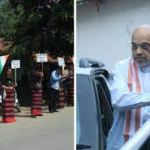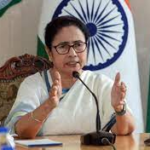
In a major development that could have far-reaching consequences for medical education in the country, approximately 150 medical colleges in India are likely to lose recognition from the National Medical Commission (NMC) due to inadequate faculty and non-compliance with regulations, according to sources. As the regulatory body for medical education and professionals in the country, the NMC has already penalized 40 medical colleges for failing to meet the required standards.
The list of medical colleges under scrutiny includes institutions located in Gujarat, Assam, Puducherry, Tamil Nadu, Punjab, Andhra Pradesh, Tripura, and West Bengal, as reported by sources familiar with the matter. The deficiencies came to light during a month-long inspection conducted by the Undergraduate Medical Education Board of the NMC. The inspection focused on various aspects, such as CCTV camera installations, adherence to Aadhar-linked biometric attendance procedures, and the composition of faculty members. It was discovered that several colleges were not fulfilling the criteria, including the proper installation and functioning of CCTV cameras, malfunctioning biometric facilities, and a significant number of vacant faculty positions.
Sources have revealed that the affected medical colleges will have the option to appeal the NMC’s decision. The first appeal can be made within 30 days at the NMC itself, and if unsuccessful, they can further approach the Union Ministry of Health. This move to derecognize medical colleges comes as a result of the government’s commitment to maintaining the quality of medical education and producing competent doctors. In December, Union Health Minister Mansukh Mandaviya had warned of strict actions against medical colleges that do not adhere to rules or maintain adequate faculty, emphasizing the need to prioritize quality education.
However, the potential derecognition of 150 institutions could trigger a crisis in a country where the number of medical colleges and seats for medical students has historically been inadequate. According to official data released by the Central government, the number of medical colleges has almost doubled since 2014, increasing from 387 to 660 in 2023. Additionally, the number of post-graduate seats has also significantly increased, with a total of 65,335 seats currently available, more than double the number in 2014. The number of MBBS seats has risen to 1,01,043, up from 51,348 in 2014.
The potential loss of recognition for 150 medical colleges would result in a nearly 25% reduction in the total number of medical colleges nationwide. Earlier this year, the Gujarat government disclosed that over 1,900 positions were vacant in government-run medical colleges and hospitals in the state until December. This situation raises concerns about the capacity to meet the demand for medical education and healthcare professionals in the country.
As the affected medical colleges prepare to appeal the NMC’s decision, the government and regulatory bodies must consider the potential implications and work towards finding solutions that balance the need for quality education and training with the availability of sufficient medical institutions to meet the growing demand for healthcare services in India.





